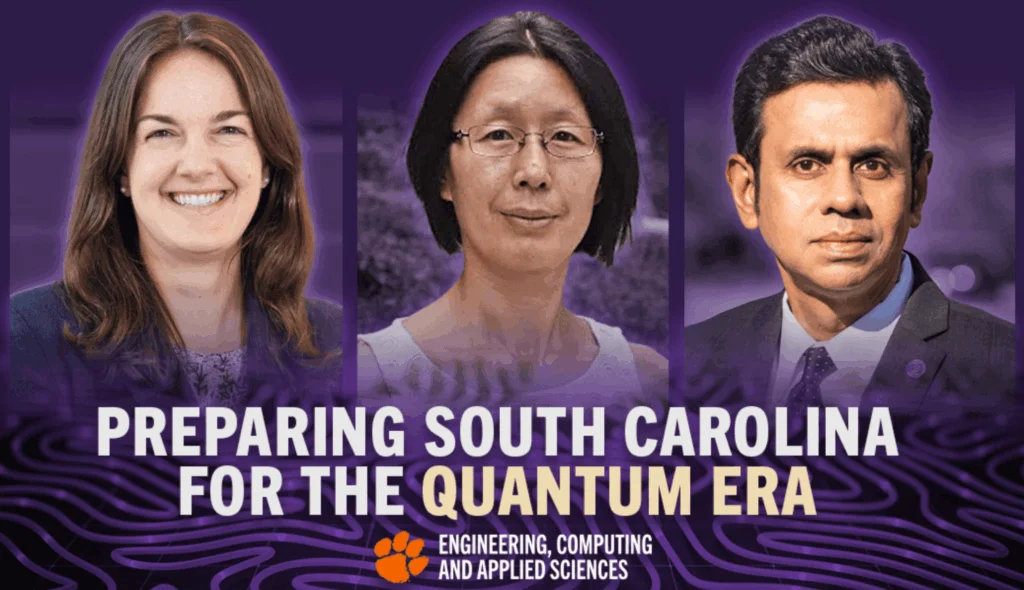By: Brian Moscioni
Conversations within the quantum information science (QIS) community are often focused on technical progression and theory, but insufficient emphasis is placed on the social governance aspect of their coming commercialization. In a world where technological capacity largely dictates the trajectories of national prosperity and geopolitical relevance, lawmakers, at the domestic and international level, need to reimagine the process of technology governance. Quantum computers will usher in a new era of once unimaginable capabilities, as well as unique challenges, which will disrupt every sector of the market. The quantum revolution will also bolster and advance the AI revolution the world’s governments are currently struggling to keep up with. Quantum technology is an emerging field which carries a tremendous amount of hype regarding its anticipated societal transformation capabilities. Whether many aspects of these speculated capabilities come to fruition or not, governments are not currently poised to sufficiently regulate this new paradigm of computing.
In 2022, OpenAI sent shock waves through nearly all industries when they released their groundbreaking platform. ChatGPT’s introduction reasserted the popular debate of regulation versus innovation and the contested formula to strike the appropriate balance. But this broad narrative frequently focuses on topical prescriptions to a much more involved and underlying complicated process. As our reality continues to be defined by advancing technology, breakthrough innovations have the ability to be extremely disruptive across any number of sectors.
We are bound to have more “ChatGPT moments”, and they will happen with increasing frequency. In our current legislative environment, regulation typically trails new technological implementation and commercialization, and the response time continues to grow wider. Many pose the argument against premature regulation in order to first understand the potential impact of these new advancements. But the limits of these technologies are continuously being redefined at speeds faster than regulators can keep pace with. This is a warning sign that highlights the need for the philosophy on technology regulation to be reanalyzed. The genie is already out of the bottle, and we cannot afford to become comfortable coexisting in a reality with runaway technologies. Quantum computers are expected to be a “virtuous cycle” innovation. This means highly capable computers will be able to develop even more robust and efficient computers, and the process continues to repeat itself. This phenomenon will place even more bureaucratic stress on policymakers to expedite the legislative process in an attempt to properly regulate increasingly complex systems with far-reaching implications on citizens’ lives.

Geopolitics, and the wide array of individual domestic policies at play, further mystify the path of development for quantum computers. Different ideologies, national priorities and forms of government will affect how quantum computers are imagined. How quantum computers are made in the United States will be different from how they are made in China, and different than the way they are made in the European Union. A democracy will likely deploy and regulate quantum technologies (QT) differently than a dictatorship. On an even smaller scale, for example, how quantum computers will be used in the financial sector will be different than the way they will be used in the energy sector, or the healthcare sector. Different stakeholders, at any level, have their own vision for what new technological capabilities mean for their respective target population or industry.
The roles of the private and public sectors and their level of cooperation and transparency as advancements in this field are made must be an area of intricate focus as well. At the global scale, this will be envisioned differently depending on the context of the beholder of the technology. The latest McKinsey report on quantum technologies shows private investments year-over-year in quantum computing are down overall, while public investments rose by a large percentage year-over-year in 2023. Alternatively, the Geneva Science and Diplomacy Anticipator (GESDA) 2023 report illustrates the billions of publicly funded dollars being invested by each respective country across the world.
As the post-Soviet era is being redefined before our eyes and the unipolar world order begins to divest into a bipolar one (with its respective alliances), concerns over quantum technology’s impact on national security continues to motivate governments to adopt and roadmap national strategies. In a recent Foreign Affairs podcast, Elizabeth Economy highlights some of the perils that come along with the dangerous and sharp rhetoric that is being tossed across international borders. How geopolitical alliances continue to emerge, and how multilateral relationships are managed, will significantly impact respective domestic policies on how quantum technologies will be governed.
It is agreed among many scholars that a pathway to successful control and preparedness of new revolutionary technological innovations will involve a high amount of multilateral and multisectoral cooperation. This is not an endeavor that can be successfully accomplished by individual authorities. Efforts like the G7’s “Hiroshima AI Process”, where governments identify likeminded regulatory procedures based upon agreed principles, need to be regularly practiced and become more common among larger alliances. Understanding that quantum technologies and related emerging tech are dual-use in nature, the continuous “weaponization” narrative will force us down siloed paths of haphazardly developing technologies at advancing speeds, while not understanding the repercussions of our actions. Multilateral cooperation may play a hand in alleviating some of these fears and de-escalating geopolitical tensions.
The United Nations has officially decreed 2025 as the International Year of Quantum Science and Technology (IYQ). High-level initiatives like this are paramount if we are to make our current and next generation aware of what lies ahead. It is also recognized that many governments worldwide have created their own national quantum strategies or guidelines. This does not guarantee that the method of technological governance will adapt in a way which is required to preempt rapid change, but it is an important foundation.
Arguments for regulation following commercialization and regulation during innovation both have their merits. Many try to integrate concepts based on historical policy examples of what has been implemented in the past. But the truth is, moving forward, historical examples will not always be sufficient. We are creating frontier technologies, the likes of which, have only ever been dreamt of. How the public and private sector, alike, navigate and regulate this “technopolar” reality we are living in will lay the foundation to unforeseen outcomes for which we will inevitably be tasked to reckon with. Technological innovation must work side-by-side with policy innovation in a more closely integrated capacity. How we learn to adapt to rapidly advancing change will determine the success or failure of our own creations.
Brian Moscioni is a current graduate student at the Harvard Kennedy School pursuing a master’s degree in public administration. Brian has also focused much of his studies at the Geneva Graduate Institute (IHEID) on quantum computing and other emerging technologies while pursuing his master’s degree in international and development studies.















